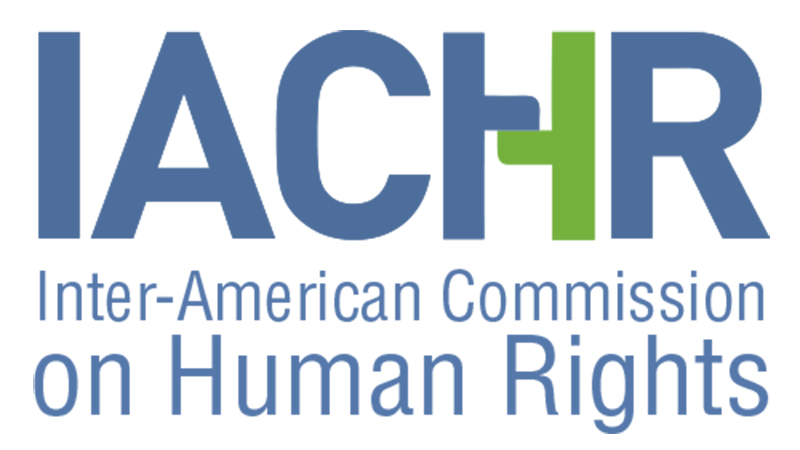The Inter-American Com-mission on Human Rights (IACHR) has denied the government’s request for a hearing before the full Commission on state violations of the rights of the Isseneru community and instead granted it a three-month extension to respond to the report of its findings.
The information was related to Sunday Stabroek by Minister of Parliamentary Affairs and Governance Gail Teixeira.
The December 21, 2021 IACHR report, which was sent to the government in April of this year, informed that government is responsible for at least 16 violations of the rights of the Isseneru community and its members and recommended that reparations be granted to the village as well as that government employs the necessary measures to support Isseneru and its members in their duty to preserve and protect the environment, particularly in relation to the mining operations that the community undertakes on its ancestral lands.

Additionally, the IACHR advised government to “…amend its legislation in order to secure that the provisions of the relevant Acts and regulations related to indigenous territorial property are in harmony with the American Declaration, in accordance with international law …”
The government had until June 20 to respond to the recommendations and according to Teixeira they did approach the Commis-sion.
“…We wrote them and they have answered us and we had asked for a hearing before the Commission [but that was not granted] and we [also] asked for 3 months extension because there were new documents shared and were sent to the former government in 2017/2018 which we had not seen until it was brought to our attention in the end of April,” she said in response to questions asked by Sunday Stabroek.
Teixeira reminded that the report of the IACHR was supposed to be confidential and added that they have reported its leaking to the Commission. She added that the Commission did promise to remind the petitioners that the contents of the report are to remain confidential until the IACHR determines otherwise.
Isseneru’s leaders have called for the government to visit the community so that a way forward can be determined as it relates to the recommendations. Additionally, they have noted increased activities by the Guyana Geology and Mines Commission (GGMC) since the IACHR’s recommendation.
When asked if government would be visiting the community as part of its response, Teixeira said that it is highly unlikely.
“Isseneru goes back to 2013 and an enormous amount of work was done in terms of site visits, sampling for mercury, health people went in, [the National] Toshaos Council went in during that period of 2014…. The NTC went in independent of the government, medical people went in a couple of times, GGMC went in, Ministers like Robeson Benn and Pauline Sukhai went in, so that was fully visited.
“So what we are dealing with [now is] Isseneru – the case. The petitioners submitted additional information which we didn’t see but they did send it to the former government in 2018 and 2019. There were several letters which the government did not respond to. So it is only now when they [IACHR] wrote us in April 2022, we said we have no correspondence in the files not because of new ministries but because even [the Ministry of] Foreign Affairs didn’t have any in their files. We asked them [IACHR] to send all the correspondences between 2015 and 2020 because we have no records. We checked many different places and we don’t have. Some of the missions checked and they found these letters which had been sent to Guyana and not answered. So it is that information we are trying to go through now,” Teixeira explained.
This now means that the government has until September to submit its response to the IACHR.
The IACHR is an autonomous organ of the Organization of American States (OAS) with a mission to promote and protect human rights in the American hemisphere. It is composed of seven independent members who serve in a personal capacity. Created by the OAS in 1959, the Commission has its headquarters in Washington, D.C. together with the Inter-American Court of Human Rights.
Isseneru, an indigenous community consisting largely of people from the Akawaio nation, and the Amerindian Peoples Asso-ciation (APA) approached the IACHR on September 5, 2013, arguing that the government had violated the rights of the community and its members to property, equality before the law, justice and a fair trial, to the protection of mothers and children, to the preservation of health and wellbeing, and to enjoy the benefits of culture. All of these rights were protected by several Articles of the American Declaration on the Rights and Duties of Man.
The appeal to the IACHR partly stemmed from two High Court rulings against the village’s objections to mining projects. Back in 2013, Justice Diana Insanally made orders granted to miner Joan Chang against the Isseneru Village Council and the Guyana Geology and Mines Commission (GGMC) binding. Members of the Village Council had claimed that the mining company was mining on titled lands without the council’s permission under the Amerindian Act and despite subsequent Cease Work Orders (CWOs) issued by the GGMC mining officer. Justice Insanally pointed out in her ruling that by virtue of Chang being granted a licence to mine prior to the coming into operation of the Amerindian Act of 2006, the Village Council had no authority to stop the operation and the GGMC no authority to issue the CWOs.
On August 13, 2008, a similar judgment was made in the High Court in the case of Lalta Naraine v Isseneru. The case of Naraine has been appealed and is languishing at the Court of Appeal since 2008/2009, according to the villagers.
The IACHR report informed that the state failed to grant Isseneru title over its entire ancestral territory despite the community demonstrating that it is a primarily Akawaio village, that it is set within Akawaio territory and, among others, it needs the full extent of the territory for its members to pursue livelihoods and survival. Additionally, it further concluded that the community’s rights to health, water, food and a healthy environment were violated by the negative impacts of mining in the community particularly contamination of waterways.
“The reparations must include measures of compensation, satisfaction and any other which are deemed appropriate in accordance with the Inter-American Standards including the provision of any required health care services to community members affected by environmental pollution,” the IACHR recommended in its report.
As part of the government’s case, it had submitted two detailed observations on the associated request for precautionary measures, some of which were deemed relevant to the issues of admissibility and merits of the petition. It was identified that in the two observations, the state contended that “the allegations set out in the petition are ill-founded, grossly misleading, prejudicial to the rights of the Amerindian peoples and disrespectful in denying the progress that Amerindian peoples have made.”
The state held that Isseneru villagers have abandoned their traditional ways and customs by engaging in a “cash economy” as opposed to subsistence living, while denying that mining threatens the livelihood of the community.
“The State also argues that the Isseneru community members have lost their traditional culture in aspects such as their building materials, their architecture and their farming systems. The State particularly emphasizes that most of the members of the community have converted to Christianity, and therefore do not preserve an ancestral spiritual connection to their territory,” the report added.






